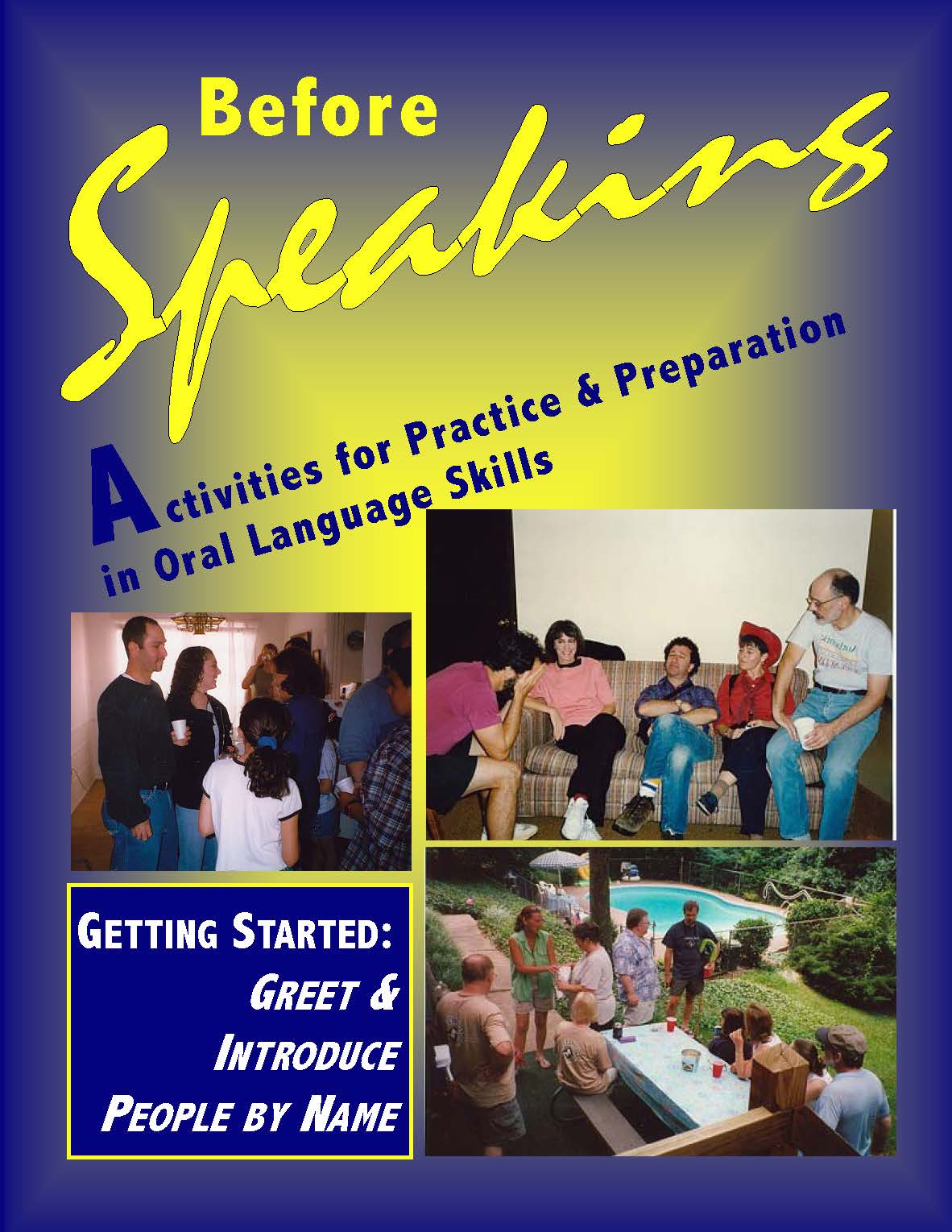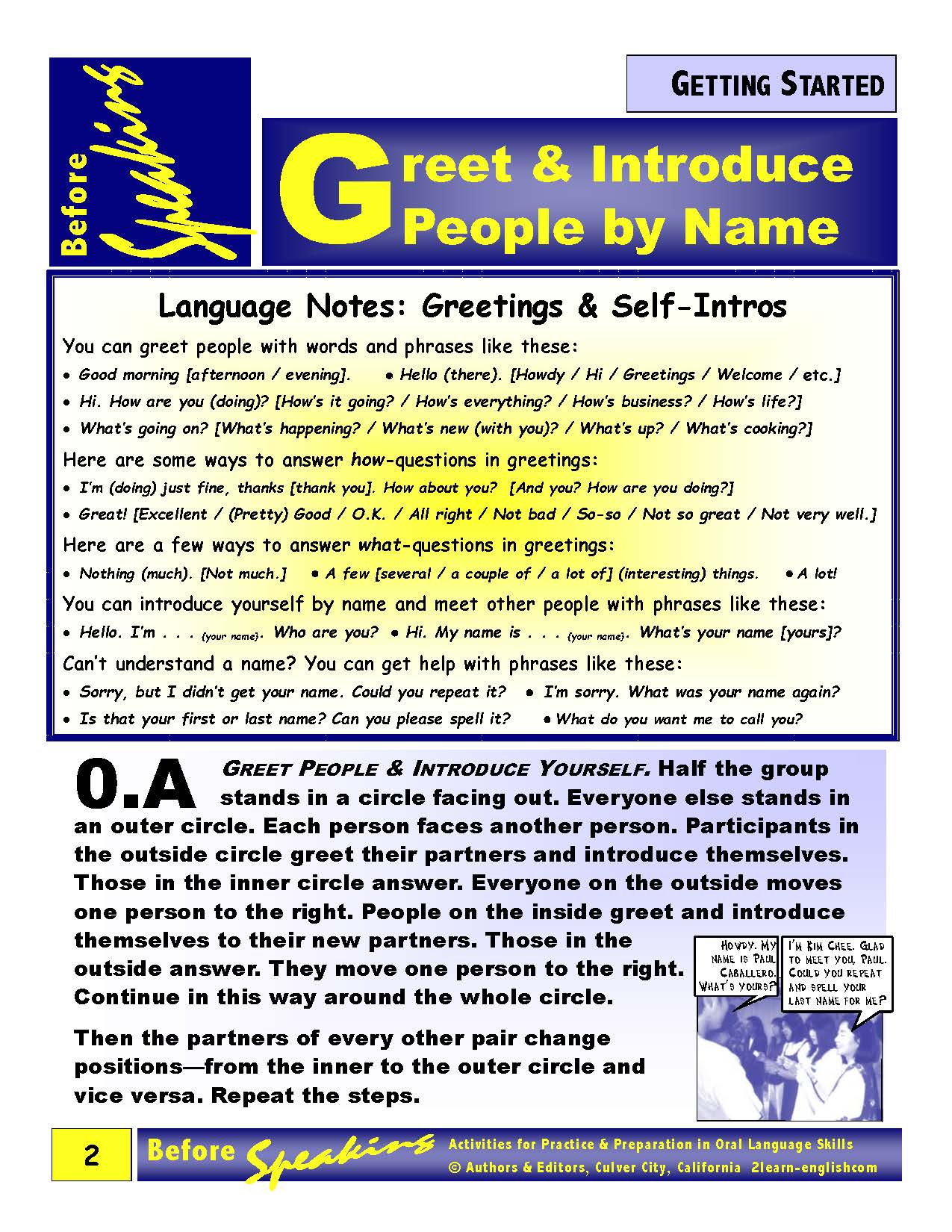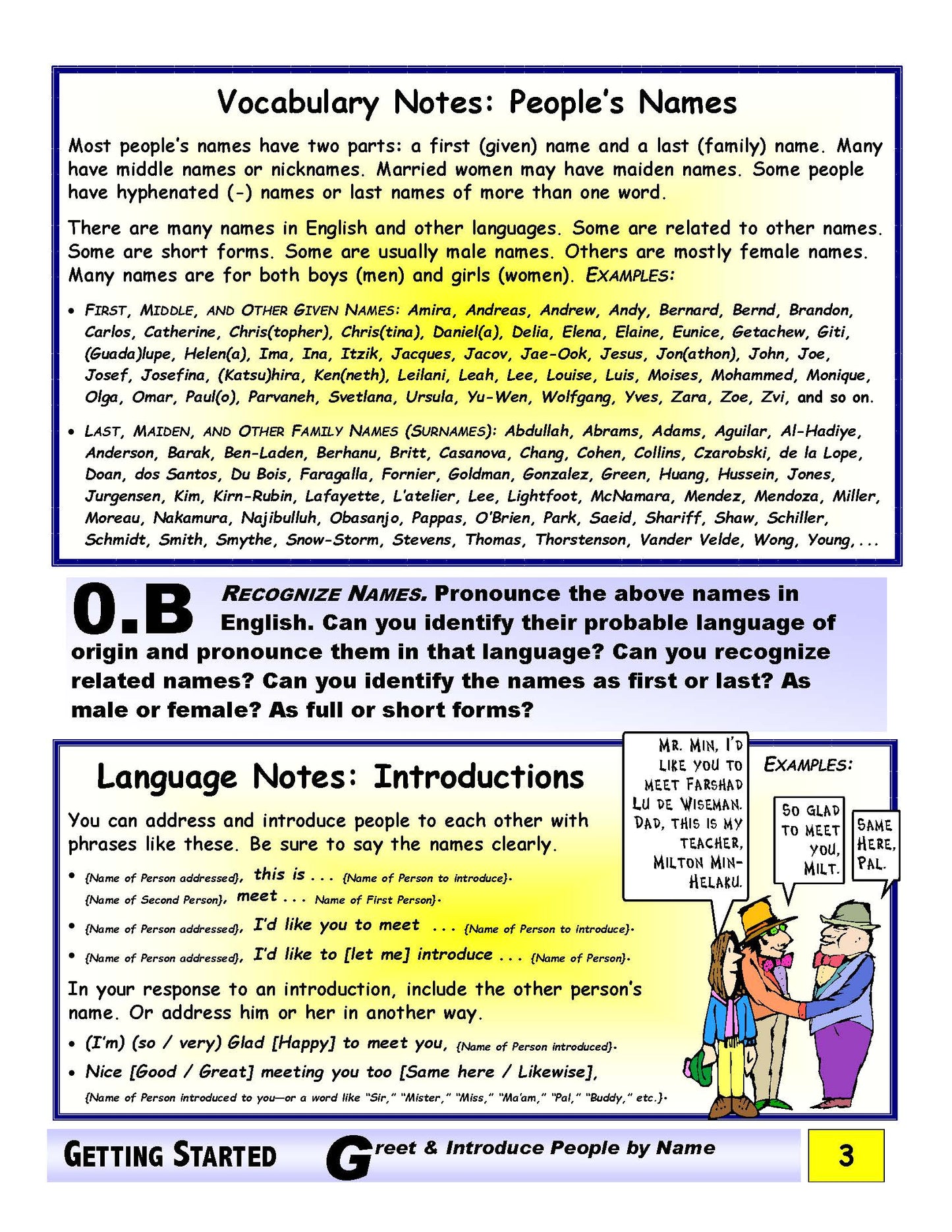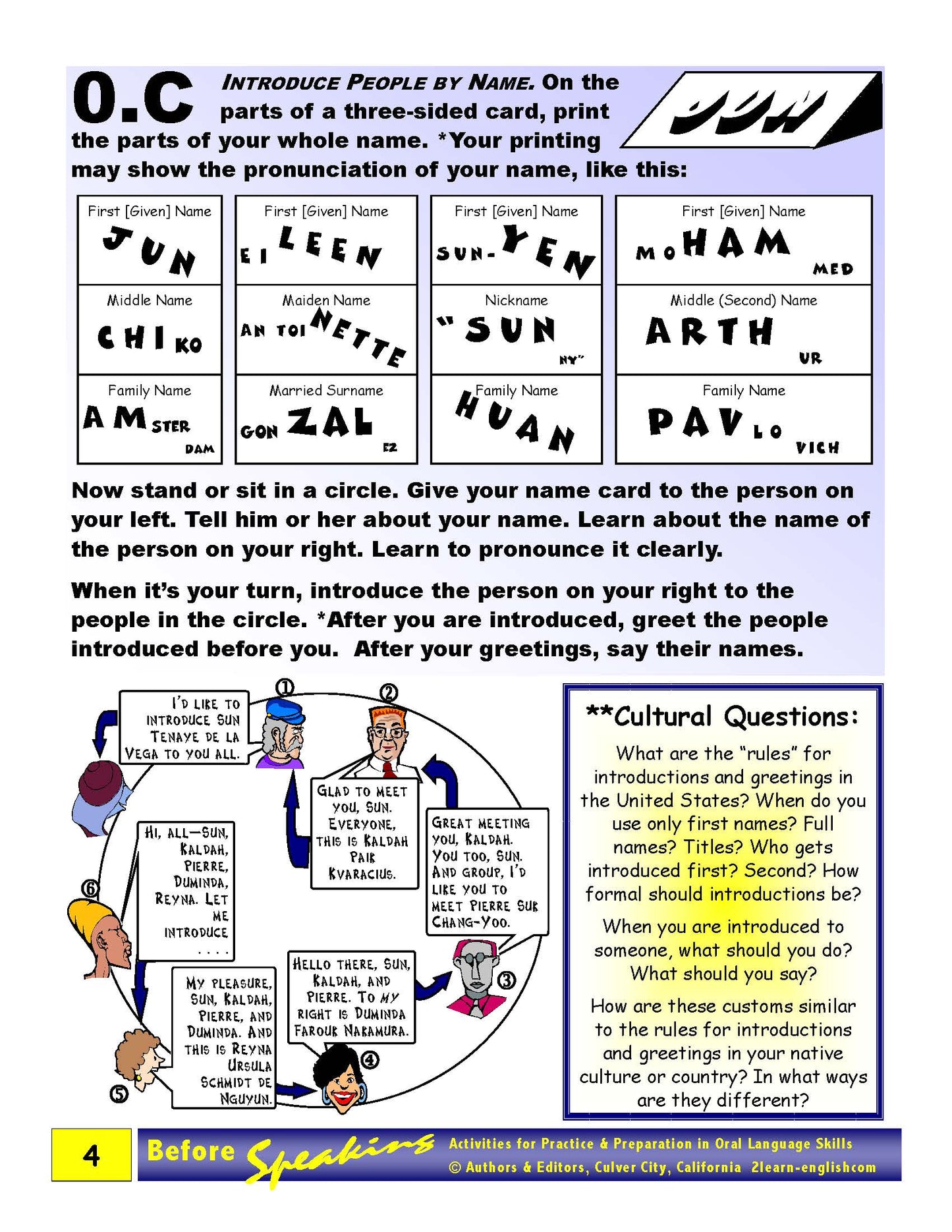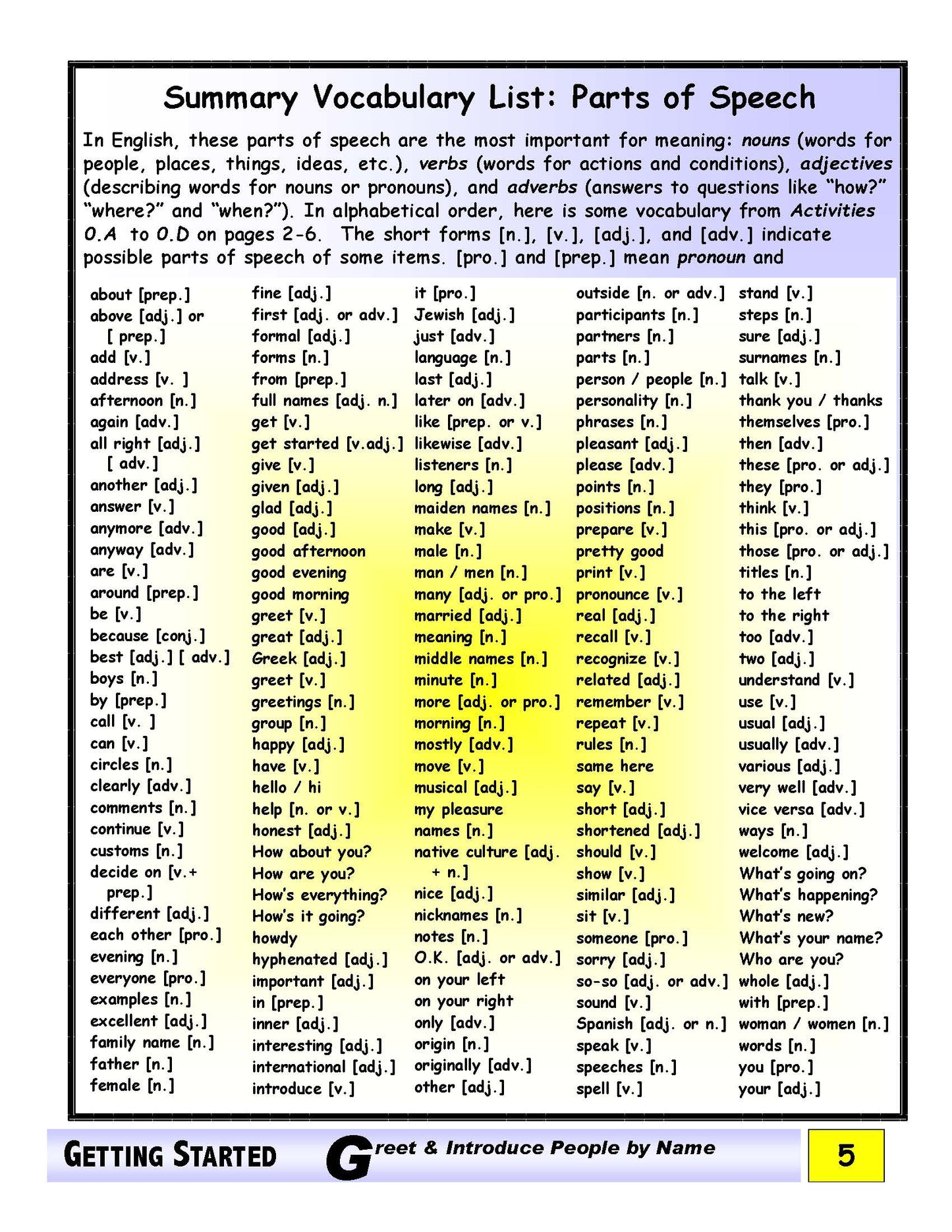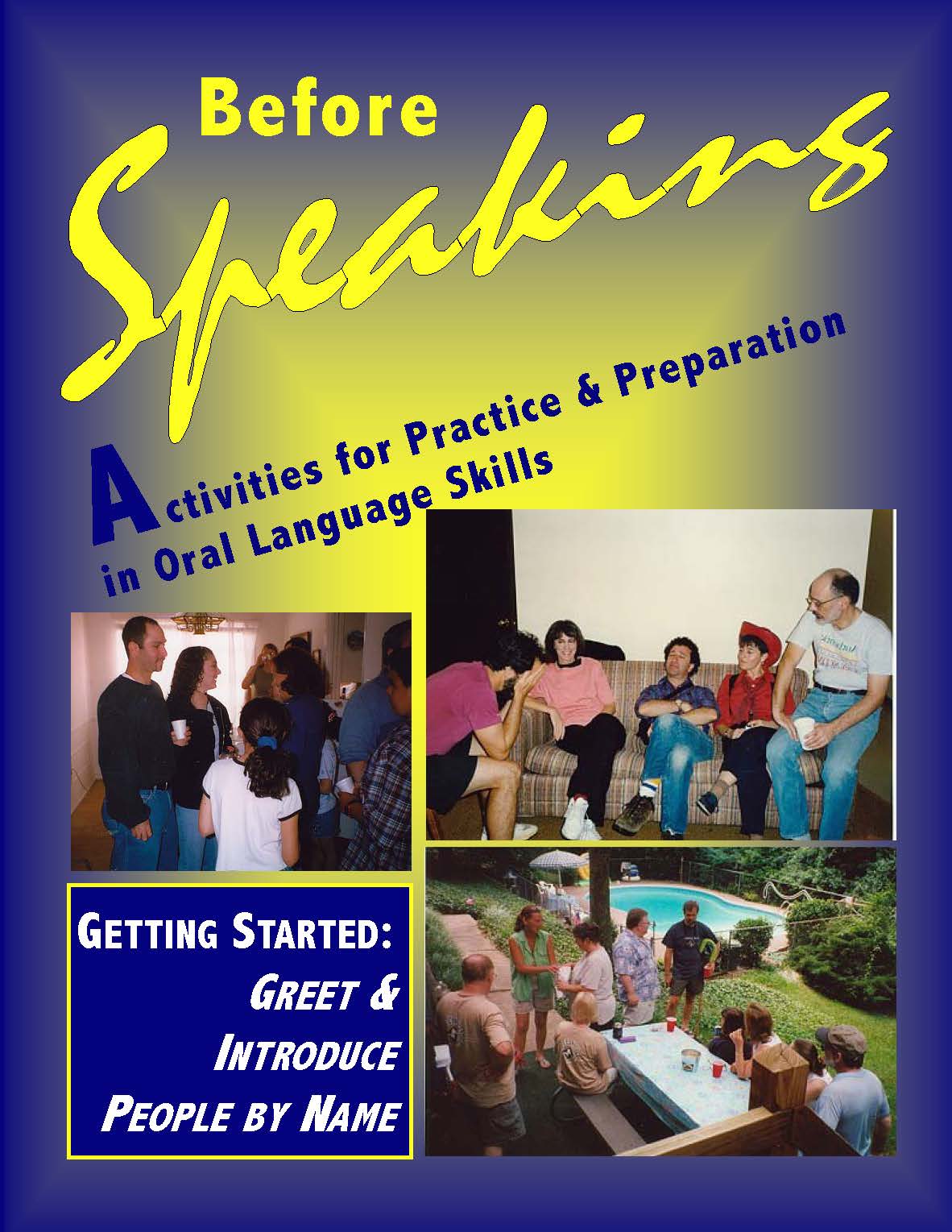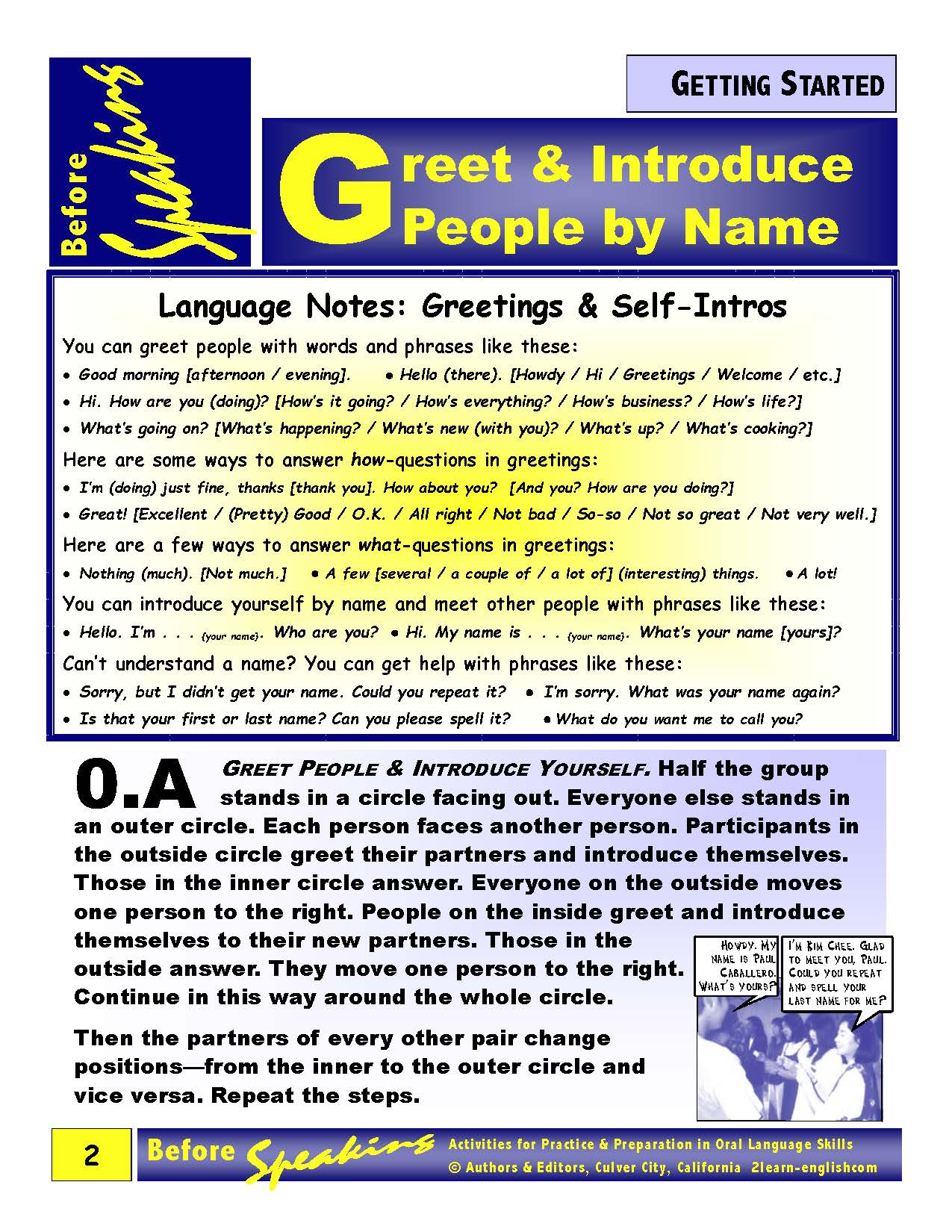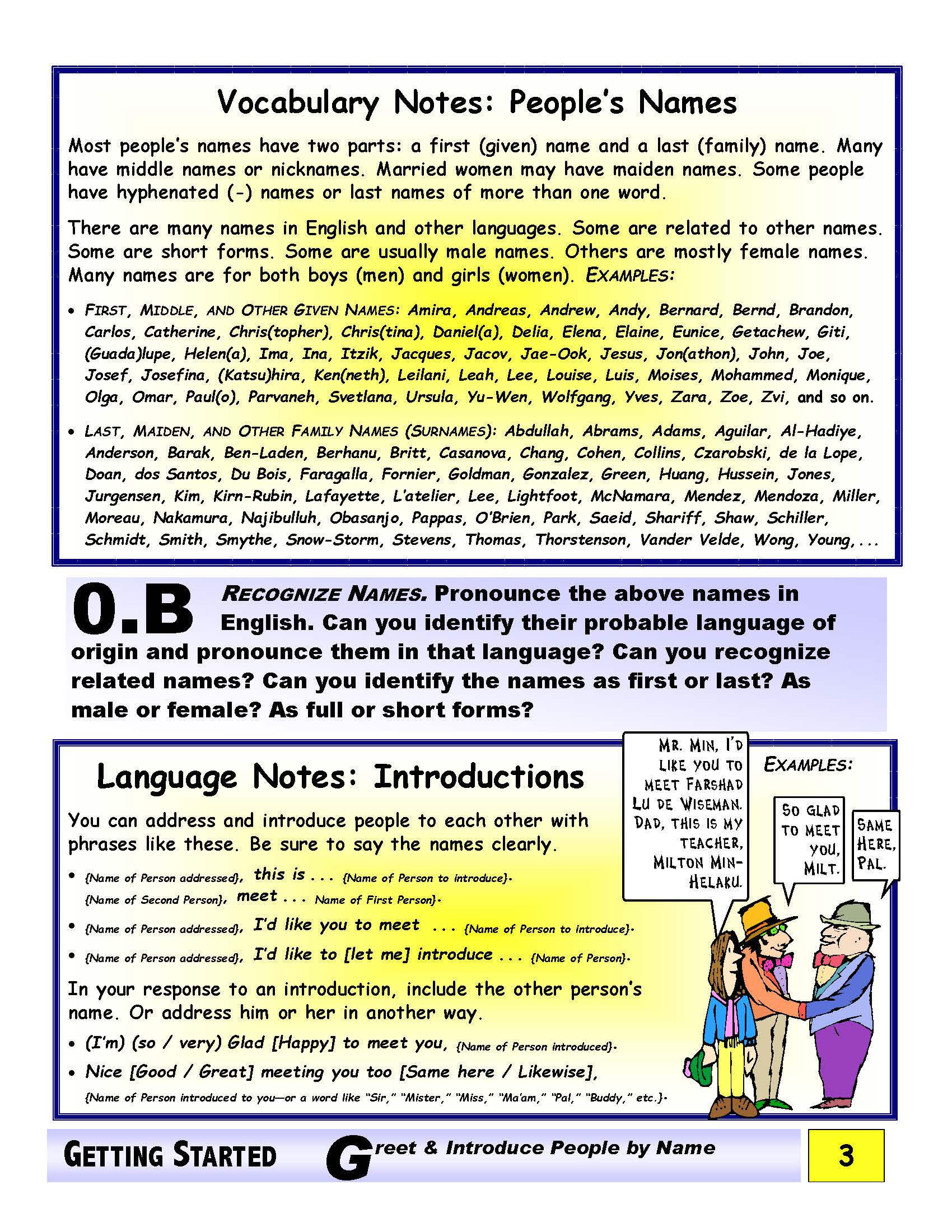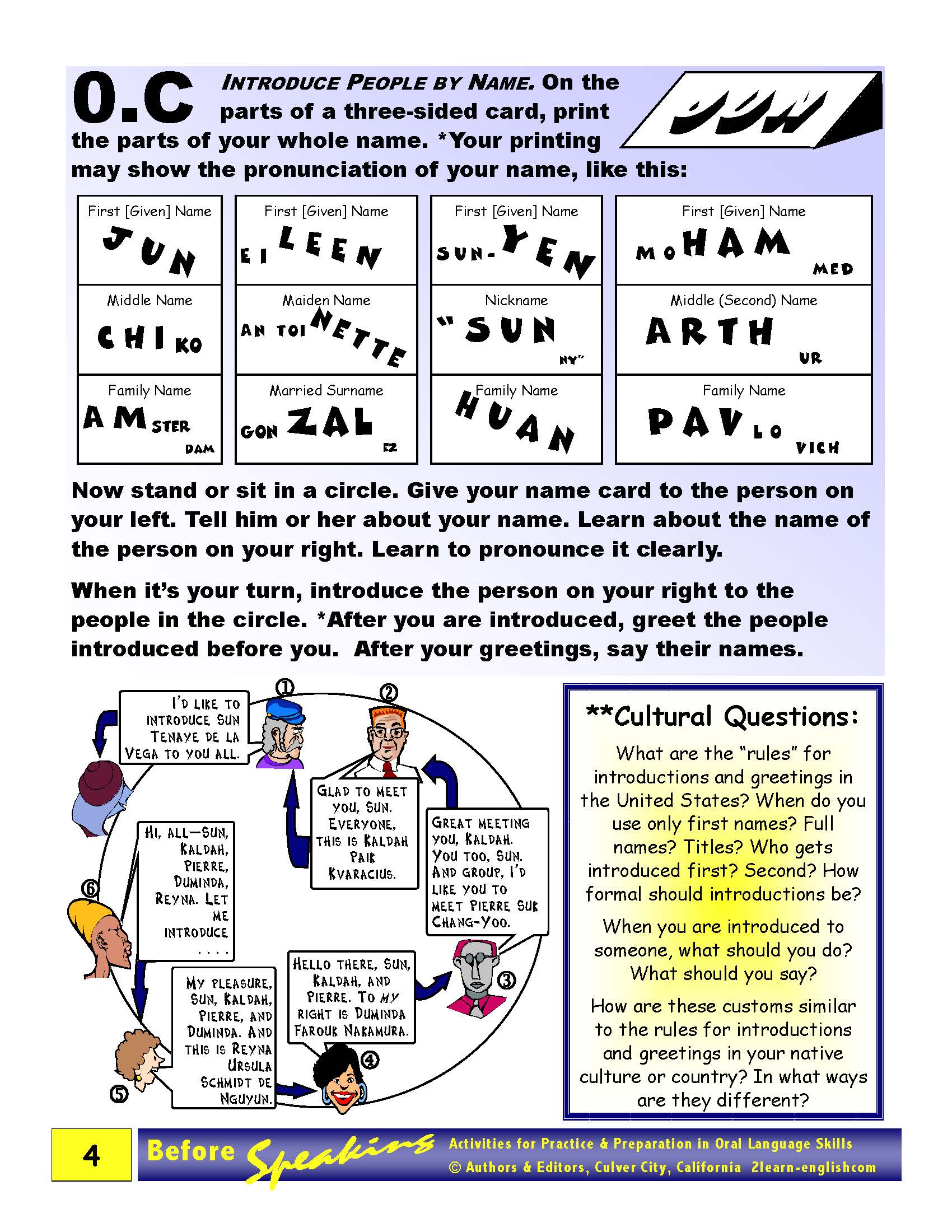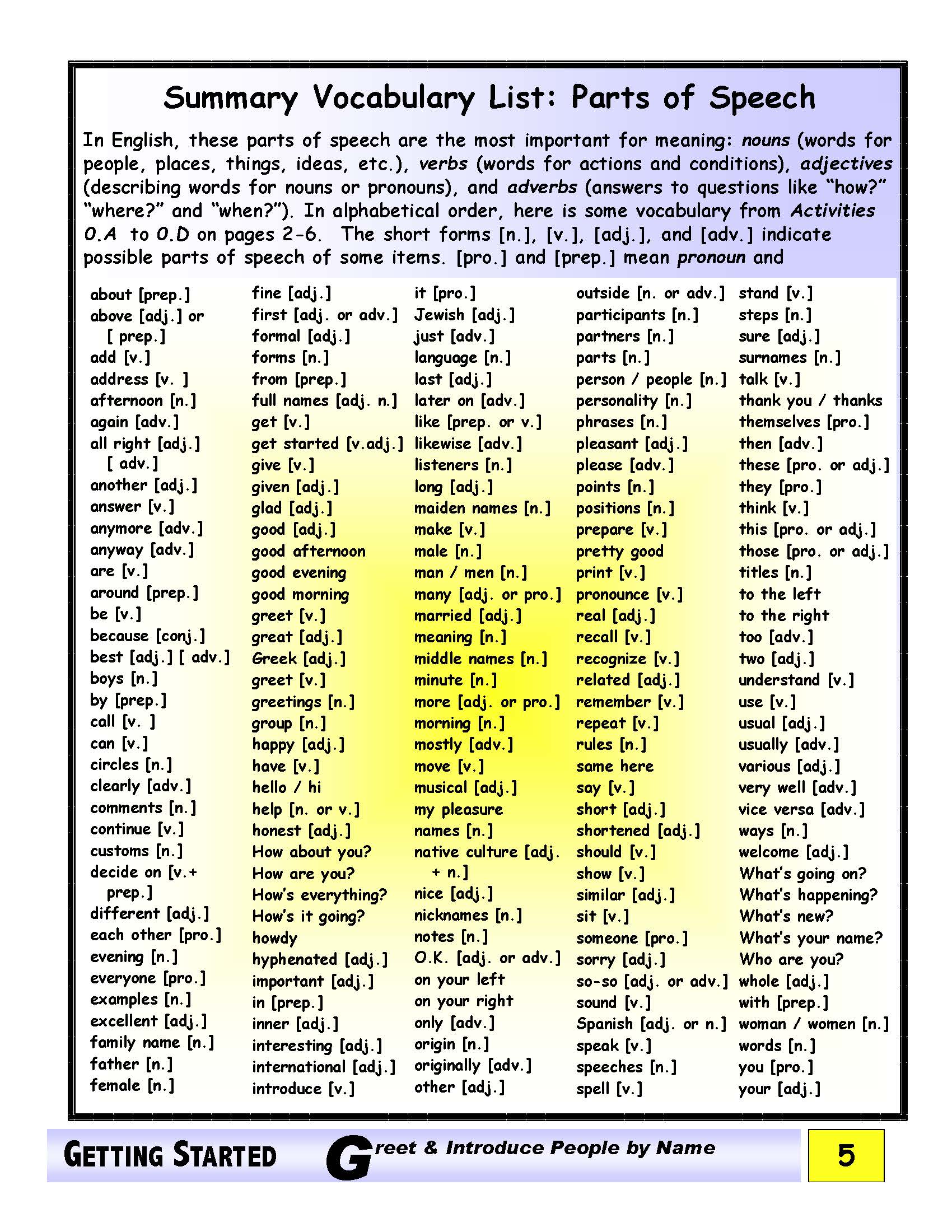1
/
of
5
Work/Life English
E-00.04 Demonstrate & Assess Oral-Language Skills Before Speaking
E-00.04 Demonstrate & Assess Oral-Language Skills Before Speaking
Regular price
$1.00 USD
Regular price
Sale price
$1.00 USD
Unit price
/
per
Before Speaking: Activities for Practice & Preparation in Oral Language Skills. Getting Started: Greet & Introduce People by Name, pages 1-6 + Suggested Answers for pages 4 & 6
6+ 2 (8)pages
Who It’s For: Language Teachers, Learners, & Helpers Ready to Assess & Improve On Linguistic Abilities Before Starting Organized Oral-Skills Instruction
Why It’s Useful: No matter what their reasons are for embarking on an Oral Language Skills course of study, participants are likely to begin by getting acquainted (with one another and its aims). This compact text Introduction offers just enough pedagogic cues and generic, interactive activities for educators and students to discover what they’re already good at—and what they’re about to teach and learn.
What You’ll Do:
[1] Together, view and comment on the Introductory Opener to the How-to Handbook Before Speaking: Activities for Practice & Preparation in Oral Language Skills. Anticipate the aims or goals of the text material. Tell what (you think) you (all or individually) already know or can accomplish in regard to Listening & Speaking.
[2] After perusing Language Notes: Greetings & Self-Intros, partake of Activity 0-A: Introduction Circles. In 0-B: Recognize Names, focus attention on possible (American-English) pronunciation of Names from various cultures. Look over Language Notes: Introductions. In 0-C, (have everyone) create Whole-Name Cards that indicate Numbers of Syllables, Stress Patterns, & intonation. Utilize these to Introduce People by Name in interactive groups. Discuss “Cultural Questions” related to Intros, Greetings, & (Given, Maiden, Family, & Other) Names. There’s info about these in the attached Suggested-Answers pages.
[3] Review what you know about clear articulation of words & phrases with a Summary Vocabulary List that indicates Parts of Speech. Then in the challenging ***0-D: Talk About Names section, prepare, hear, and give Mini-Speeches on subject matter dear to everyone: our names, their origins & meanings, and people’s reactions to them.
[4] Want additional “coaching” in what articulate (near-)native speakers of English might say when participating in the Activities of Before Speaking? An extensive, separate Answer Key contains suggestions for phrasing, vocabulary, and content. Its first two pages are attached to the end of the E-00-04 Download. They even include Sample Speeches about the Names of the text’s authors and family members.
Couldn't load pickup availability
